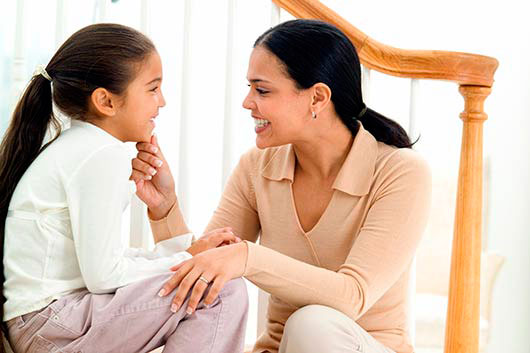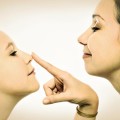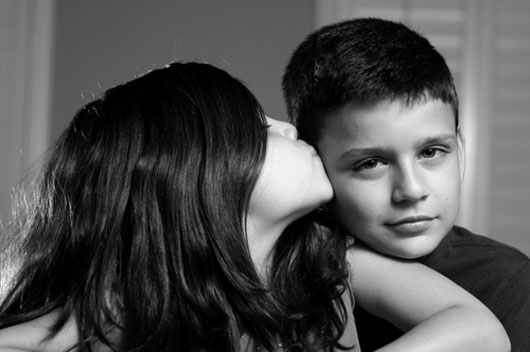
It’s a sickening and enraging thought that my tween son and teenage niece are considered fair game in the sexual exploits of predators. But as disturbing as the thought of a sexual predator is, the truth is child molesters lurk all around us.
The show To Catch a Predator and the recent news that Penn State’s former assistant coach, Jerry Sandusky, who is facing numerous counts of child molestation, offer sobering reminders of what’s out there. Last year, right before school started, an incoming teacher at my son’s school was busted in a child pornography investigation. Even as I write this piece, the news in the background is telling me the police are looking for a man who exposed himself to an 11-year-old girl in front of a Harlem school and that firemen found a collection of child porn at the house of a professor at the Pratt Institute. For a closer look at convicted sexual offenders near you, go to the FBI’s registry (it will lead take you to your state’s database.)
Statistics on child molestation paint a scary picture. According to a widely cited study by Pediatric Annual, one in every three or four girls and one out of six boys are sexually assaulted or abused by time they are 18. That is a staggering estimate. And even though, there are about 90,000 cases reported each year, that’s just a small percentage of the actual victims, based on a report by the National Institute for Mental Health. It gets worse. On average a child molester will have 117 victims before they are caught!
Read Related: 5 Threats Your Teen Faces
Dr. Yasmin Davidds, a renowned life coach who interviewed more than 1,000 Latinas across the country between the ages of 16 and 55, found that 67% reported being sexually assaulted by a family member. In the majority of the cases, Dr. Davidds was the first person to whom they revealed this abuse, likely spurred by her openness about being physically abused and sexually molested by her father at a young age, acts she documented in her book Empowering Latinas: Breaking Boundaries, Freeing Lives.
We turned to Dr. Davidds for tips on how to protect your child from a molester:
• Let your child own their body. It’s important to teach children, early on, that they are the boss when it comes to their body. No one should touch them in ways that make them feel uncomfortable. Let them know it doesn’t matter if it’s a parent, a teacher, another student. When Dr. Davidds spoke to her daughter about body ownership, she often told her that anything covered by a bikini was definitely off limits.
• Be open. Make it a point to broach the subject, in a calm, chatty manner every couple of months. “Telling a child that they should talk to you if anything happens to them serves no purpose if you don’t discuss the subject,” says Dr. Davidds. If parents don’t bring it up, neither will the child. “No child wants to go against the norm,” adds Dr. Davidds. A natural time to start a discussion would be if there’s something in the news that you read or saw. Dr. Davidds suggests saying something like: “I’m so glad that little girl/boy spoke up….What a brave child.
• Build a support system. Approach your prevention strategy with the “it takes a village” mentality and enlist relatives you trust to reinforce the message that no one should violate their body or make them feel uncomfortable. It adds another layer of openness that cues your child to communicate with you or a relative.
• Trust your child. “Children feel when there’s sexual energy around,” says Dr. Davidds. If they tell you they don’t want to go to Tío’s house, you should ask why and not force them to go. Listen to your child.
• Don’t force them to hug or kiss someone they don’t want to. This is an extension of owning their body. Many times a child will not want to hug or kiss a friend or relative. It is important not to force affection, because it sends a message that they are doing something that doesn’t feel right and against their will.
HOW TO SPOT ABUSE
Often there are no obvious external signs of child sexual abuse. Some signs can only be detected on physical exam by a physician. Here are some signs sexually abused children may develop:
• unusual interest in or avoidance of all things of a sexual nature
• sleep problems or nightmares
• depression or withdrawal from friends or family
• seductiveness
• statements that their bodies are dirty or damaged, or fear that there is something wrong with them in the genital area
• refusal to go to school
• delinquency/conduct problems
• secretiveness
• aspects of sexual molestation in drawings, games, fantasies
• unusual aggressiveness, or suicidal behavior
Source: American Academy of Child & Adolescent Psychiatry’s Facts for Families.











